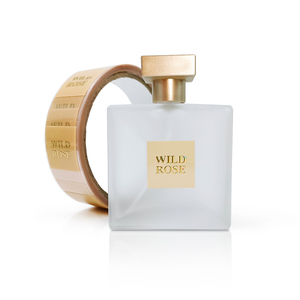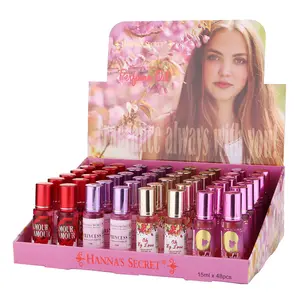(343922 products available)

































































































 Ready to Ship
Ready to Ship





































































































Eau de Toilette
Eau de toilettes tend to be light and are therefore best sprayed in moderation and multiple times throughout the day. Most women will stock several EDT fragrances and thus remain loyal to one brand without faith in its distribution.
Eau de Parfum
The fragrances tend to be richer and more complex, often unfolding in layers over time. People looking to buy women's perfume online should ensure they purchase eau de parfums as these are the more popular perfumes.
Parfum
Because of its concentration, parfum is often used sparingly, requiring just a few dabs to experience its full effect. Because the scents are rich and classic, parfum is mainly marketed to the luxury consumer sector, which adds more profit to the business.
Scented Body Lotion and Cream
Scented lotions are relatively cheaper than sprays, increasing their attractiveness to price-sensitive consumers. They also come in a wider variety of fragrances, including those that may be too strong or overwhelming in the original perfume bottle. Consumers can layer the scent with other products for a fuller experience.
Essential Oils
Synthetic Fragrance Oils
To expand the scent profile and make it more economical, synthetic fragrance oils are manufactured from aromatic chemical compounds. These scents mimic rare or endangered natural ingredients, such as the musk, and are included to make the perfume less expensive. Synthetic scents also ensure consistency in the quality and scent of perfume every time. They are, however, mostly unpopular with consumers seeking natural perfumes manufactured exclusively with essential oils.
Alcohol
Perfumes are mostly water or alcohol-based, with alcohol being the most common medium used to hold the scent together. When applied to the skin, the alcohol evaporates, leaving the perfume's fragrance. Ethanol is usually used in high-quality perfumes; denatured alcohol is used in less expensive fragrances. Alcohol acts as a preservative that increases the perfume's shelf life, hence boosting its sales.
Fixatives
Fixatives are ingredients used to slow down the evaporation of the more volatile fragrance notes in a perfume. This helps to balance the scent so it does not change with time and instead consistently delivers the same aroma every time. Common fixatives include resins (like amber), and musk (natural or synthetic), and orris root. Apart from enhancing the fragrance, fixatives help the perfume last longer when applied.
Diversity of Options
Perfumes come in many fragrance families, such as florals, orientals, fresh, and woody. Each fragrance family can be segmented and targeted to a different type of consumer based on their age, lifestyle, or even culture. For example, younger women gravitate toward fresh and fruity scents, while mature women prefer orientals and florals. Retailers attract a wider consumer base by stocking a range of perfume types and scent profiles.
Brand Loyalty and Repeat Purchases
Perfume is an accessory that people tend to buy repeatedly and over time, hence creating brand loyalty in users. Once a customer has found a fragrance that resonates with them, they will keep buying it and maybe even the other fragrances by the same brand. Fragrances for women are issued in different types, such as EDT or parfum, allowing retailers to sell even more products to loyal customers. Knowing this, retailers capitalize on seasonal trends or special editions to drive repeat purchases.
Packaging and Presentation
Perfumes come in many beautifully designed bottles that enhance their appeal and attractiveness to consumers. The design, color, and material of the fragrance container create a sense of luxury, nostalgia, or modernity. Women perfume packaging is thoughtful and classy and helps the perfume to stand out on the retail shelves. It also creates an emotional connection with the consumer, increasing the perceived value of the product. This makes consumers willing to pay a higher price for the scent.
Emotional and Psychological Impact
Perfumes can help mood enhancement. The right scent can boost confidence and reduce stress. Retailers can market perfumes as mood enhancers by associating specific scents with positive emotional states. For instance, calming scents such as lavender will boost relaxation in the user and thus be suitable for use before sleep. Scents like citrus are refreshing and energizing and are ideal for use in the morning to get the user in the right mood for work. They can also be used to create a lasting impression. These benefits of perfume enable retailers to sell the products by focusing on the emotional advantages of scent.
Gift Potential
Perfumes are perceived and marketed as luxury gifts. They come in beautifully designed bottles and are usually protected in nice boxes, making them ideal gifts for any occasion, such as birthdays, graduations, and anniversaries. Retailers can push fragrances during the holiday season by promoting them as suitable gift choices, increasing sales. To perfume lovers, each fragrance is a gift waiting to be unwrapped, making it an appealing present.
Concentration of Fragrance Oils
The higher the concentration of perfume oils, the stronger and longer lasting the perfume will be. Parfums usually contain 20-30% fragrance oils and are therefore the most concentrated and expensive perfumes. Reminiscing fragrances are less concentrated, containing only 10-15% perfume oils, and are therefore cheaper options. They are better suited for the office and other informal activities where feelings should not be overpowering.
Brand Reputation
Although people will not discount an upcoming brand, they will usually select perfumes from reputable brands through research to guarantee quality. Established fragrance houses invest in premium quality ingredients and adhere to stringent manufacturing standards. Brands with a loyal consumer base and positive reviews will ensure that what is in the bottle is of good quality.
Scent Profile and Longevity
Good quality perfume should have a rich scent profile and be highly herby. This is due to the mastery with which ingredients and notes are blended by quality perfume makers. A well-crafted perfume unfolds in layers or what is known as fragrance accord, containing top, middle, and base notes. These notes are made from ordinary ingredients that wear off quickly, such as citrus, and those that take longer to wear off, like woods and resins. Longevity and sillage (the aura of scent that lingers) are key characteristics of quality fragrances that make them worth the price.
Testing and Feedback
Consumers usually go to great lengths through reviews and testimonials to ascertain the quality of the perfume before they buy it online. Word of perfume is powerful, with feedback indicating both the scent and the staying power of the perfume. Retailers can add over with cultures by testing scents themselves, offering samples, or relying on positive feedback before purchasing in bulk.
EDT and EDP refer to perfume concentrations that are in order of concentration; EDTs have less and EDPs have more. Eau de toilettes consist approximately 10-15% fragrance oils and are thus light scents that last around 4-6 hours. Eau de parfums contain 15-20% perfume oils and are more concentrated. They have fuller scents and stay longer and better than EDTS. They are more powerful and more expensive than eau de parfums, which are mainly available. Because of their concentrations, perfumes are more suitable for everyday use, while eau de parfums are for special occasions.
Perfumes do not have an expiration date like consumable products, but they can spoil and go to waste with time. This often happens to fragrances after extended exposure to light, heat, and air, which degrades its components. Most perfumes will last around 3-5 years on average. However, some high-end perfumes may even last longer than this. Lesser perfume and fragrances may lose their scents and be less potent over time. That is why one is advised to store perfumes in a cool, dark place away from direct sunlight to enhance longevity.
The average life of perfume is around 3-5 years. However, the longevity of any fragrance depends on its formulation; eau de parfums can remain fragrant for longer than toilette perfumes. Packaging also affects longevity, as fragrances stored in airtight containers will last longer than those exposed to air.
Yes, people can become immune to a perfume over time due to prolonged exposure. This is called olfactory fatigue and is normal for people who wear the same scent often. The nose adapts to and no longer registers the scent, making users think the perfume has worn off or lost its effectiveness. This is why experts advise allowing one to remain a few moments before reapplying perfume.